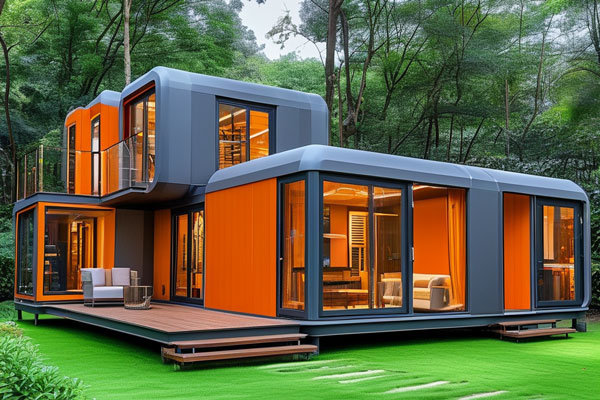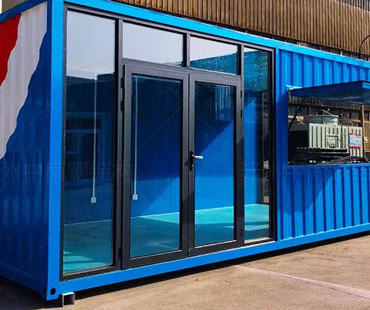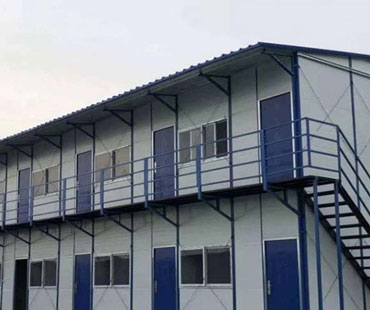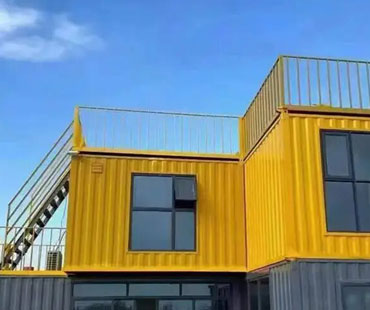With the continuous development of modern building technology, integrated houses, as an emerging form of construction, have gradually gained a place in the market. It is increasingly favored by more and more people due to its unique design concept and construction technology, showcasing numerous advantages.
1. Fast construction speed
One of the biggest advantages of integrated housing is its extremely fast construction speed. Integrated houses usually use prefabricated components and modular design, and only require simple assembly and assembly on site. This construction method greatly shortens the construction period and can often be completed within a few days or weeks. This is particularly important for situations that require quick resolution of housing issues, such as post disaster reconstruction, temporary resettlement, etc.
2. High cost-effectiveness
Integrated houses perform well in terms of economy. Due to the use of prefabricated components, the efficiency of material utilization is greatly improved, reducing waste during the construction process. In addition, the construction process of integrated houses is relatively simple, and the shortened construction period also reduces labor costs, effectively improving the overall economic efficiency of the project. This makes integrated housing an ideal choice for budget limited projects.

3. Environmental sustainability
Integrated housing emphasizes environmental protection and sustainable development. In terms of material selection, more renewable resources and environmentally friendly materials are used to reduce environmental pollution. During the construction process, due to the use of prefabricated components, there is relatively less construction waste and debris generated on site, thereby reducing the environmental burden. In addition, the design of integrated houses usually has good insulation and thermal insulation performance, which can effectively save energy and further reduce the consumption of natural resources.
4. Structural safety and stability
The design and construction process of integrated houses are subject to strict standards and specifications to ensure their structural safety. Prefabricated components are produced in factories and can undergo quality inspection in a controlled environment to ensure the reliability of each component. Integrated houses also have good performance in earthquake resistance, wind resistance, and other aspects, which can effectively ensure the safety of residents.
5. Flexibility and Scalability
The design of integrated houses is flexible and versatile, and can be personalized according to different needs. Whether it is residential, office, or commercial spaces, integrated houses can be designed and adjusted according to the specific requirements of users. This flexibility makes integrated houses suitable for various occasions, such as temporary exhibitions, campus dormitories, construction site dormitories, etc. In addition, the scalability of integrated houses has also received widespread attention. Owners can easily increase or decrease the number of rooms, adjust the structure of the house, and fully meet the needs of different stages of use according to future changes in demand.
6. Beautiful design
Modern integrated houses emphasize the combination of aesthetics and functionality in their design. Many integrated houses have stylish and minimalist exterior designs, with a modern and artistic feel. Through diverse exterior materials and color choices, integrated houses can harmoniously blend with the surrounding environment, meeting residents' pursuit of a beautiful living environment. Designers can provide unique styles for integrated houses based on different cultural backgrounds and regional characteristics, increasing the comfort and pleasure of living.
7. Low maintenance cost
Integrated houses typically use durable materials and have high waterproof, corrosion-resistant, and weather resistant properties. This means that its maintenance cost is relatively low during use. Regular inspections and simple maintenance can effectively extend the service life of a house, greatly reducing repair costs caused by aging or damage. At the same time, the structural design of integrated houses also allows for disassembly and assembly in certain situations, making it easier for later renovation and upgrading.
8. Strong adaptability
Integrated houses can adapt to different climate conditions and geographical environments, and designers can make corresponding adjustments based on the climate characteristics of specific locations. For example, in cold regions, insulation layers can be added, while in hot regions, good ventilation design can be adopted. This adaptability makes integrated houses popular not only in cities, but also in remote areas such as rural and mountainous areas, solving housing problems in different regions.
Integrated houses have become an important choice in the field of modern architecture due to their advantages such as construction speed, cost-effectiveness, environmental sustainability, structural safety, flexibility, aesthetics, low maintenance costs, and strong adaptability. With the increasing awareness of living quality and environmental protection among people, the market demand for integrated houses will continue to grow.


